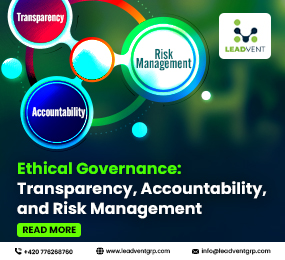ESG and Climate Africa: Strengthening Resilience Through Responsibility
Africa stands at a crossroads. It is a continent rich in natural resources and youthful energy, yet one of the most exposed to climate-related risks. Droughts, rising temperatures, floods, and land degradation continue to impact livelihoods, especially in communities that depend on agriculture, fisheries, and informal economies. In response, a growing movement toward ESG Environmental, Social, and Governance principles is gaining momentum across Africa as both a moral and economic necessity.
For African countries, ESG isn’t just about aligning with international standards. It’s about charting a sustainable future that reflects the continent’s unique social structures, governance challenges, and environmental realities. This includes climate action tailored to local conditions, corporate transparency that builds trust, and development strategies that uplift communities without harming ecosystems.
Environmental Stewardship at the Center
Across the continent, governments and industries are beginning to embed environmental responsibility into policy and planning. From renewable energy investments in Kenya and Morocco to reforestation efforts in Rwanda and Ghana, African nations are showing that proactive climate action is not only possible it’s practical.
Renewable energy is a standout success story. With abundant sun, wind, and geothermal potential, Africa is positioned to leapfrog traditional fossil-based energy systems. Solar farms in Nigeria, wind energy in Ethiopia, and off-grid solutions for rural electrification are transforming energy access while reducing emissions.
Governance and Accountability
Good governance remains a cornerstone of ESG success in Africa. Transparent procurement, responsible public spending, and anti-corruption frameworks are being strengthened in response to both citizen demand and investor scrutiny. There’s a growing emphasis on policy consistency, data reporting, and stakeholder engagement factors that help attract sustainable investment and international partnerships.
In the private sector, more African companies are embracing sustainability reporting and ethical leadership. From agribusinesses adopting regenerative practices to banks assessing climate risks in portfolios, a cultural shift is underway.
Social Equity: No Climate Justice Without Human Dignity
Climate action must also be people-centered. Africa’s ESG future depends on inclusion ensuring that women, youth, Indigenous communities, and marginalized
populations are part of the solution. Projects that deliver clean water, education, healthcare, and sustainable jobs contribute just as much to climate resilience as energy transition initiatives.
Furthermore, African civil society and local innovators are becoming more active in the ESG space driving grassroots change and holding both governments and corporations accountable.
Takeaway Point
ESG in Africa is more than a trend; it is a framework for reimagining development where environmental responsibility, ethical leadership, and social inclusion are not side efforts but central pillars. As Africa builds its own climate solutions and governance models, it is laying the foundation for a resilient, equitable, and sustainable future that reflects the strength and potential of its people.
Learn more on our website: https://www.leadventgrp.com/events/esg-and-climate-africa-summit/details
For more information and group participation, contact us: [email protected]
Leadvent Group - Industry Leading Events for Business Leaders!
www.leadventgrp.com | [email protected]
















